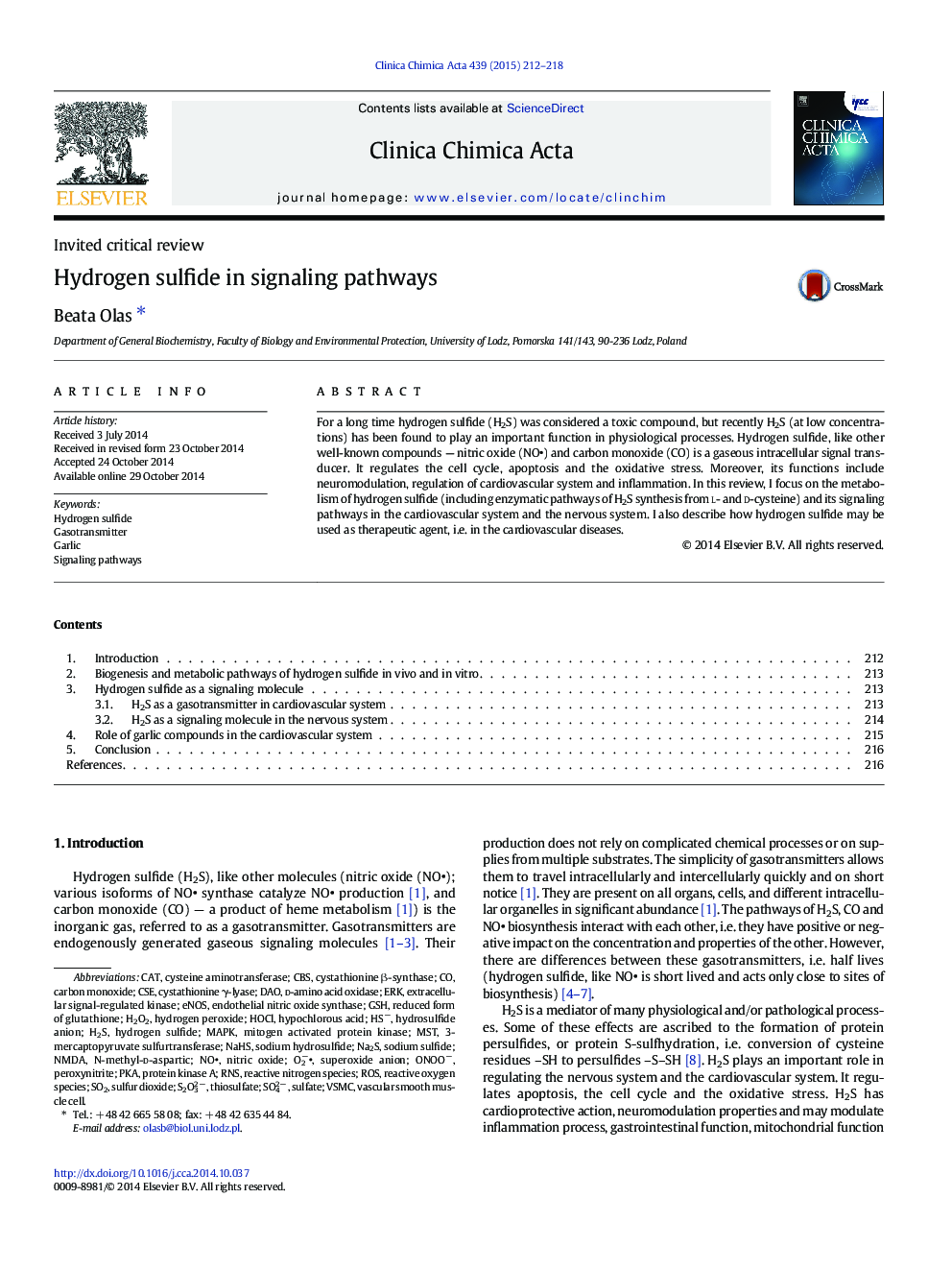| Article ID | Journal | Published Year | Pages | File Type |
|---|---|---|---|---|
| 8311232 | Clinica Chimica Acta | 2015 | 7 Pages |
Abstract
For a long time hydrogen sulfide (H2S) was considered a toxic compound, but recently H2S (at low concentrations) has been found to play an important function in physiological processes. Hydrogen sulfide, like other well-known compounds - nitric oxide (NO) and carbon monoxide (CO) is a gaseous intracellular signal transducer. It regulates the cell cycle, apoptosis and the oxidative stress. Moreover, its functions include neuromodulation, regulation of cardiovascular system and inflammation. In this review, I focus on the metabolism of hydrogen sulfide (including enzymatic pathways of H2S synthesis from l- and d-cysteine) and its signaling pathways in the cardiovascular system and the nervous system. I also describe how hydrogen sulfide may be used as therapeutic agent, i.e. in the cardiovascular diseases.
Keywords
H2SGSHERKCATNaHSCSEVSMCRNSHOCleNOSMSTpKaNa2SNMDAHS−CBS3-mercaptopyruvate sulfurtransferasecystathionine γ-lyased-amino acid oxidaseMAPKO2−ONOO−ROSHydrogen peroxidesuperoxide anionhypochlorous acidThiosulfateDAOSulfur dioxideSO2Vascular smooth muscle cellendothelial nitric oxide synthaseSulfateSodium sulfideHydrogen sulfidecysteine aminotransferaseGarliccystathionine β-synthaseSignaling pathwayscarbon monoxideNitric oxideSodium hydrosulfideH2O2protein kinase Amitogen activated protein kinasePeroxynitritereduced form of glutathioneextracellular signal-regulated kinaseGasotransmitterreactive nitrogen speciesReactive oxygen species
Related Topics
Life Sciences
Biochemistry, Genetics and Molecular Biology
Biochemistry
Authors
Beata Olas,
